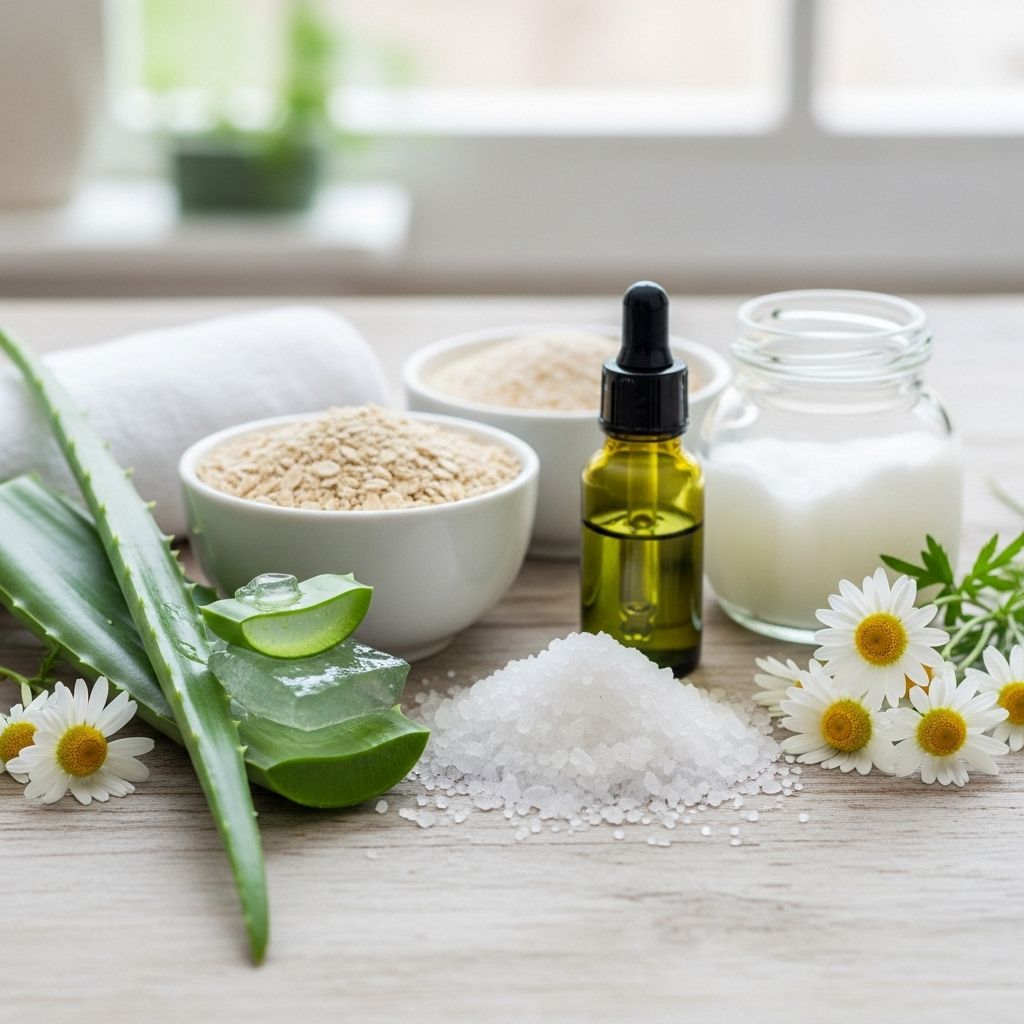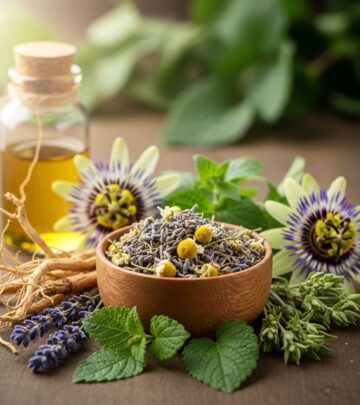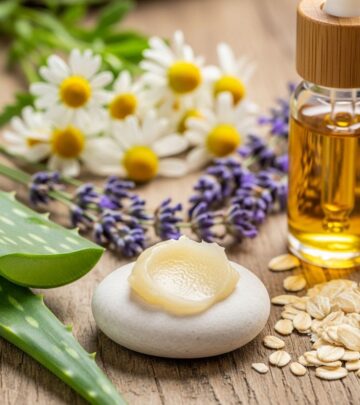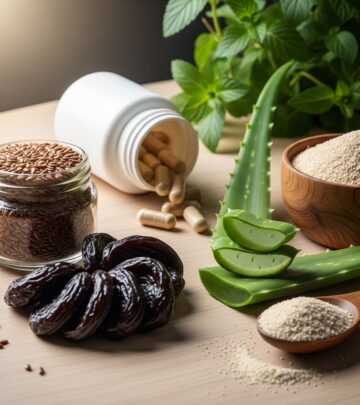12 Effective Natural Remedies for Psoriasis Relief
Explore expert-backed, evidence-based natural remedies for psoriasis to soothe discomfort, reduce flare-ups, and support healthy skin management.

Psoriasis is a chronic autoimmune skin condition that leads to the rapid buildup of skin cells, causing scaling, inflammation, and discomfort. While there is no cure, many individuals benefit from natural remedies that can complement conventional therapy and relieve some of the more troublesome symptoms. This article reviews twelve expertly recommended natural strategies to help soothe flare-ups, reduce scales, and support skin health.
Understanding Psoriasis and Its Symptoms
Psoriasis manifests as thick, red, scaly patches commonly appearing on the scalp, knees, elbows, or lower back but may affect any part of the body. Symptoms often include:
- Raised, inflamed, red patches covered with silvery-white scales
- Dry, cracked skin prone to bleeding or itching
- Itchy, burning, or sore skin
- Joint pain and swelling in some cases (psoriatic arthritis)
The exact cause is not fully understood, but it involves immune system dysfunction and genetic factors. While prescription treatments are available, natural remedies can provide additional comfort and may help manage flare-ups when integrated carefully into your care plan.
1. Aloe Vera: Nature’s Soothing Gel
Aloe vera is renowned for its anti-inflammatory and moisturizing qualities, making it a popular choice for soothing irritated or scaly skin. Applying a topical cream with at least 0.5% aloe content or using fresh aloe gel directly from the leaf two to three times daily can help reduce redness and scaling associated with psoriasis. Opt for fragrance-free, hypoallergenic products for sensitive skin and monitor for irritation.
Key benefits:
- Reduces skin inflammation and redness
- Provides moisture, minimizing dryness and tightness
2. Apple Cider Vinegar: Relief for Scalp Psoriasis
Apple cider vinegar (ACV) may alleviate itchy, irritated scalp caused by psoriasis. The acidity helps restore the scalp’s pH and has mild antibacterial properties. To use, dilute ACV with water in a 1:1 ratio and apply to the scalp several times a week. Allow it to sit for a few minutes, then rinse thoroughly. Note: Avoid use on broken or cracked skin, as vinegar can sting or worsen discomfort.
Key usage tips:
- Always dilute with water to prevent irritation
- Rinse scalp after application and discontinue if burning occurs
3. Colloidal Oatmeal: Calming Itch and Redness
Colloidal oatmeal (finely ground oats) is an age-old remedy for itchy, inflamed skin, including psoriatic plaques. Oatmeal baths or pastes can relieve itching, soothe irritation, and help the skin retain moisture. Add powdered colloidal oatmeal to a warm bath and soak for 15–20 minutes, then apply a moisturizer while the skin is still damp to trap hydration.
Why it works:
- Natural anti-inflammatory and antioxidant properties
- Encourages healing by protecting the skin barrier
4. Dead Sea or Epsom Salts: Restoring Skin Balance
Salt baths using Dead Sea salts or Epsom salts can help reduce scaling, remove dead skin, and ease itching. The minerals in these salts—particularly magnesium—may reduce inflammation and enhance skin elasticity. Dissolve a cupful of salt in a warm (not hot) bath and soak for 15–20 minutes, avoiding prolonged exposure to prevent dryness.
Aftercare: Moisturize the skin promptly after bathing to prevent drying out.
5. Sunlight and Safe Phototherapy
Brief, controlled exposure to natural sunlight provides ultraviolet B (UVB) rays that slow down excessive skin cell growth in psoriasis. Start with a few minutes per day, gradually increasing time outdoors while using sunscreen on unaffected areas. Always use broad-spectrum SPF 30+ sunscreen to guard against sunburn, which can worsen symptoms.
Important: Overexposure can lead to burns or increase skin cancer risk, so consult a healthcare provider before starting sunlight therapy.
6. Omega-3 Fatty Acids: Anti-Inflammatory Nutrition
Omega-3 fatty acids found in fatty fish (like salmon, sardines, and mackerel), flaxseeds, walnuts, and fish oil supplements help fight inflammation throughout the body. Studies suggest incorporating omega-3s into your diet may reduce psoriasis severity and improve the overall skin condition.
How to add more omega-3s:
- Eat oily fish at least twice weekly
- Consider supplements after consulting your doctor, especially if you have any underlying conditions or take blood-thinning medications
7. Turmeric: Herbal Power Against Flare-ups
Turmeric, particularly its active ingredient curcumin, displays strong anti-inflammatory and antioxidant effects. Laboratory and clinical research shows it can reduce specific inflammatory markers involved in psoriasis, potentially lessening the frequency and severity of flare-ups.
How to use:
- Add turmeric or curcumin supplements to your regimen under medical advice
- Include turmeric in your daily cooking (curries, smoothies, teas)
8. Tea Tree Oil: Potential for Scalp Relief
Tea tree oil, a natural essential oil, is thought to possess antiseptic and anti-inflammatory properties, especially in shampoos for scalp psoriasis. However, scientific support is limited and some people may develop allergies, so use with caution, performing a patch test first.
Tips:
- Choose diluted products designed for sensitive skin
- Avoid direct, undiluted application and discontinue use if irritation occurs
9. Mahonia Aquifolium (Oregon Grape): Herbal Extract for Skin Clarity
Mahonia aquifolium, commonly known as Oregon grape, is an antimicrobial botanical remedy. Clinical studies demonstrate that creams containing up to 10% Oregon grape extract can alleviate mild-to-moderate plaque psoriasis when applied topically. This herb interacts with immune function and should be used under healthcare supervision.
Main benefits:
- Calms immune-mediated skin inflammation
- Helps reduce redness and scaling
10. Capsaicin: Spicy Relief for Skin
Capsaicin, the compound responsible for chili peppers’ heat, is included in certain creams intended to block pain signals and minimize itching. Preliminary evidence supports capsaicin’s potential to reduce inflammation and scaling, but it may cause a temporary burning sensation when first applied.
To use safely:
- Start with a small amount on a limited skin area
- Avoid use on sensitive or mucosal areas
11. Salicylic Acid: Gentle Exfoliation
Salicylic acid is a beta hydroxy acid commonly found in over-the-counter creams and shampoos for psoriasis. It works by softening and loosening scaly patches, supporting easier removal of dead skin cells. For best results, combine with a moisturizer to counteract potential dryness from exfoliation.
12. Indigo Naturalis and Dithranol: Traditional Herbal and Modern Topical Therapies
Indigo naturalis is a traditional Chinese remedy derived from fermented plants, used topically to minimize psoriasis plaques. Randomized controlled trials show significant reduction in lesion thickness and scaling with regular application. Meanwhile, dithranol (also called anthralin), originally sourced from the araroba tree, is a time-tested topical that slows down skin growth and dampens inflammation. Both require careful handling to avoid skin irritation and should be used as directed by a healthcare provider.
Supporting Tips for Psoriasis Management
- Moisturize daily: Prevent dryness and cracking by applying rich, fragrance-free moisturizers immediately after bathing.
- Identify and avoid triggers: Common triggers include stress, infections, injuries to the skin, smoking, and alcohol. Track flare-ups to uncover patterns.
- Practice stress reduction: Mind-body techniques such as yoga, meditation, and deep breathing can help calm the immune system and limit flare frequency.
- Maintain gentle skin care: Use mild, unscented cleansers and avoid harsh scrubbing or loofahs that aggravate lesions.
- Consult healthcare providers: Always coordinate natural therapies with your dermatologist, especially before trying new supplements or topicals.
Frequently Asked Questions (FAQs)
Q: Are natural remedies a replacement for prescription treatments?
A: Natural remedies can ease symptoms but serve best as a complement to doctor-prescribed treatments. Severe or worsening cases should always be discussed with a healthcare professional.
Q: How quickly can I expect results from home remedies for psoriasis?
A: Results vary. Some people notice relief in a few days, but most natural approaches require consistent use over several weeks for noticeable improvement.
Q: Can dietary changes help reduce psoriasis flare-ups?
A: Yes, diets rich in anti-inflammatory foods (omega-3 fats, fruits, vegetables) and limited in alcohol and processed foods may help. However, more research is needed, and individual triggers can differ.
Q: Is it safe to use multiple natural remedies at once?
A: Some combinations are safe, but others may irritate your skin or interact with medications. Introduce one remedy at a time and monitor your skin’s response. Seek medical advice for guidance.
Q: Is sunlight exposure always beneficial for psoriasis?
A: Moderate sun exposure can help some individuals, but too much increases the risk of sunburn and skin cancer. Always protect healthy skin with sunscreen and consult your doctor about the safest approach.
Conclusion
Natural remedies offer valuable support in managing psoriasis for many individuals. While these methods can reduce itching, inflammation, and discomfort, they are most effective when integrated with traditional medical care and personalized to your skin’s unique needs. Always consult your healthcare provider before beginning any new treatment regimen.
References
- https://health.clevelandclinic.org/home-remedies-for-psoriasis
- https://www.medicalnewstoday.com/articles/314525
- https://www.psoriasis.org/integrative-approaches-to-care/
- https://www.mayoclinic.org/diseases-conditions/psoriasis/diagnosis-treatment/drc-20355845
- https://www.dulyhealthandcare.com/health-topic/at-home-natural-remedies-for-psoriasis
- https://pmc.ncbi.nlm.nih.gov/articles/PMC10229448/
- https://www.webmd.com/psoriasis/story/psoriasis-alternative-treatments
Read full bio of medha deb












